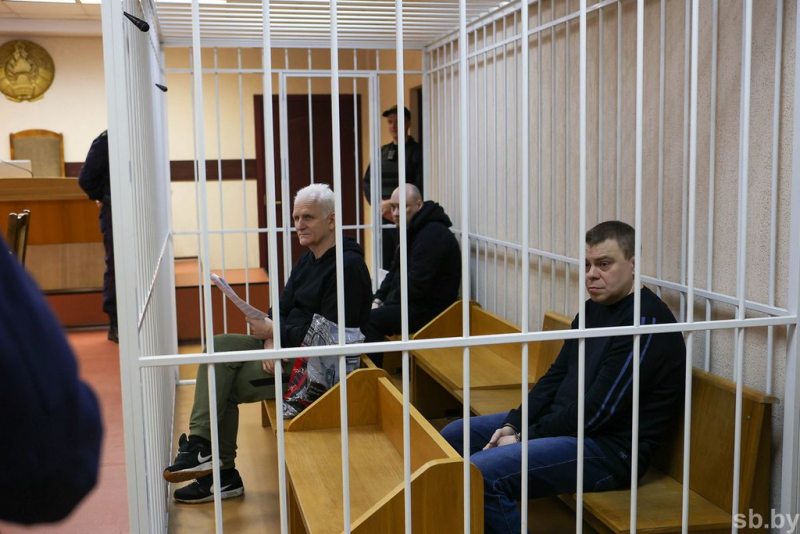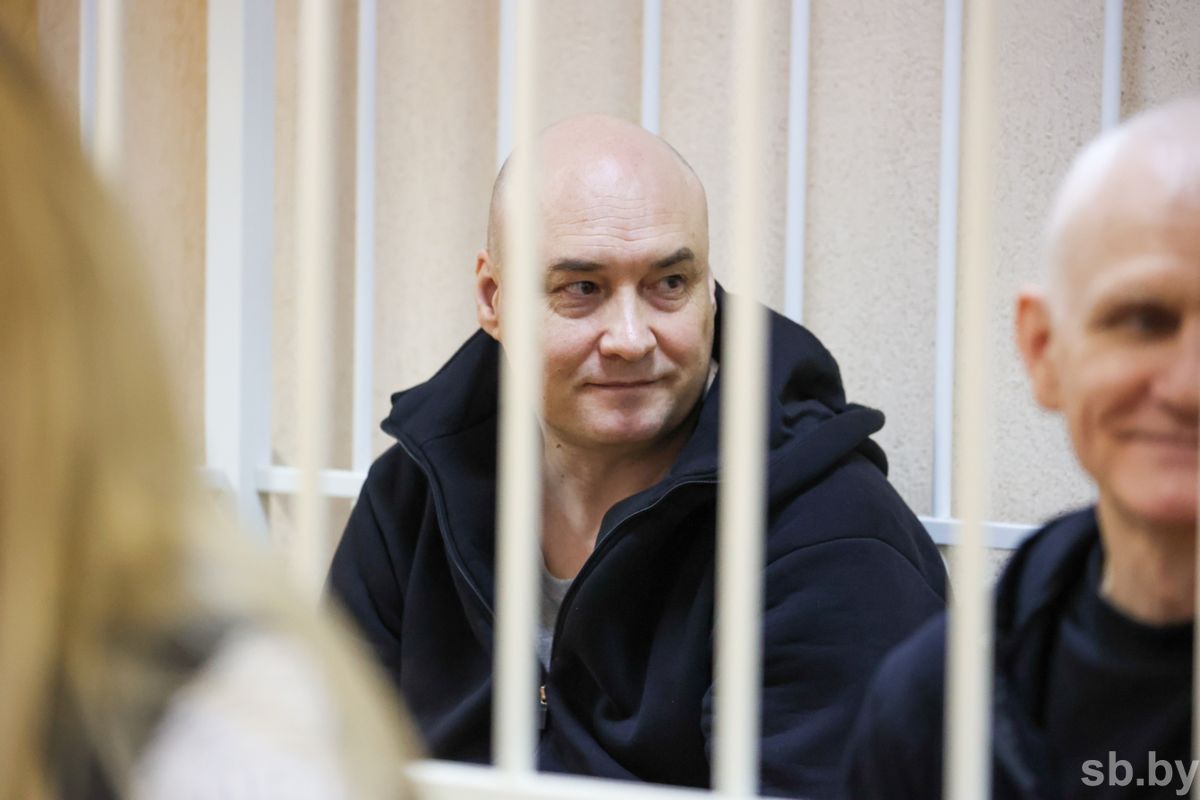Viasna leader's appeal denied, harsh prison sentences upheld
On April 21, the Minsk Municipal Court heard appeals and a prosecutorial protest in the case of Viasna human rights defenders Ales Bialiatski, Valiantsin Stefanovic, and Uladzimir Labkovich, who were sentenced to harsh prison terms of 7 to 10 years on March 3. The court, presided over by Sviatlana Bandarenka, left the appeals of the Viasna members and their defenders unsatisfied, but satisfied the prosecutor's protest, which asked to change the wording of the verdict. The verdict against the political prisoners has now taken effect, and they will soon be transferred to colonies.

- Ales Bialiatski, Valiantsin Stefanovic, and Uladzimir Labkovich.
The prosecutor brought a protest, and the political prisoners appealed the verdict, which was scheduled for review in less than two months.
The prosecutor insisted that the court did not identify reasons for sentencing Labkovich to a term below the lower limit of seven years provided by Article 228 of the Criminal Code, and therefore considered it necessary to adjust the sentencing under this particular article. It does not, however, affect the final concurrent sentence of seven years in jail. The court agreed and satisfied the protest.
The appeals of the Viasna members and their defenders were left unsatisfied.
The verdict against the political prisoners has now taken effect, and they will soon be transferred to colonies. In the case of Zmitser Salauyou, who was sentenced in absentia to eight years, the verdict took effect on March 3, as he did not file an appeal.
A brief overview of the Viasna case trial
The case was heard in an open format by Judge Maryna Zapasnik from January 5, 2023, for almost two months. Prosecutors claim that in the period from 2016 to 2021, foreign accounts of human rights defenders received money from various structures and foundations, which were intended to finance the “illegal” activities of the HRC Viasna and other organizations in Belarus.This money in the total amount of at least 201,000 euros and 54,000 US dollars was allegedly cashed and brought from Lithuania to Belarus in several stages without declaration.According to the case files, between May 2020 and July 14, 2021, the defendants purposefully prepared citizens to participate in group actions that grossly violate public order. In addition, under the guise of human rights and charity activities, including on behalf of Viasna and the unregistered foundation BY_HELP, they financed such actions and provided other material support, the prosecution believes.In particular, the human rights defenders were accused of paying fines for repressed individuals, food bills in detention centers, and lawyers' fees.
Ales Bialiatski, Valiantsin Stefanovic, and Uladzimir Labkovich pleaded not guilty. During the trial, none of the petitions—for the process to be conducted in Belarusian, to remove handcuffs, to provide time for familiarizing with the case, and others—were satisfied by the judge.
The case materials consist of 284 volumes, which contain a lot of information about the public activities of the human rights defenders, posted on Viasna's website and social media, even after the defendants' arrests. For example, the materials include a list of political prisoners (1,322 people) recognized by Viasna as of September 3, 2022, shortly before the final charges were brought against the human rights defenders and more than a year after their arrests. The inspection protocol took up 128 pages. From the case materials, it became known that the Main Directorate for Combating Organized Crime and Corruption (GUBOPiK) officers began investigative activities against the human rights defenders in September 2020, starting with wiretapping the phone of Brest department head Uladzimir Vialichkin. It was also revealed during the trial that GUBOPiK officers had wiretapped a meeting between political prisoner Leanid Sudalenka and his wife in a short-term meeting room at the Homieĺdetention center No. 3, which occurred two months after the human rights defender's arrest.
The human rights defenders testified in court and commented on the charges brought against them.

“Viasna's activity is legitimate and legal. Its activities have been and are being carried out in accordance with the UN Declaration on Human Rights Defenders," said Valiantsin Stefanovic.
Ales Bialiatski commented on the charges under part 2 of Article 342 of the Criminal Code:
“It is immoral and inhumane to criminalize aid to political repression victims, which suddenly occurred after May 2020. Part 2 of Article 342 of the Criminal Code has not changed, it has been like that for many years. Humanitarian aid to affected people has suddenly been interpreted under this article since May 2020. So this criminalization is arbitrary. It is in the tradition of the Belarusian people to help people in need."
On March 3, Judge Marina Zapasnik sentenced Viasna founder and Nobel Peace Prize laureate Ales Bialiatski to 10 years in prison, deputy chairman of Viasna and vice-president of FIDH Valiantsin Stefanovic to nine years in prison, coordinator of the campaign "Human Rights Defenders for Free Elections" and lawyer Uladzimir Labkovich to seven years in prison, and "Viasna" human rights defender Zmitser Salauyou to eight years in prison in absentia. Everyone except Ales Bialiatski was also fined 111,000 Belarusian rubles (approx. $41,300), while the chairman of Viasna was fined, as requested by the prosecutor, 185,000 rubles (approx. $69,000). The court also ordered to collect from the defendants 752,438 rubles 62 kopecks (almost $297,650), which they had allegedly “obtained by criminal means” through “smuggling by an organized criminal group”. It was this amount that appeared in the charges under Part 4 of Article 228 of the Criminal Code. During the pronouncement of the verdict, the human rights defenders stayed handcuffed with their arms twisted behind their backs.
The prosecutor filed an appellate protest against the verdict of the Lieninski District Court of Minsk on March 3.
The human rights defenders have been in custody since July 14, 2021.

















